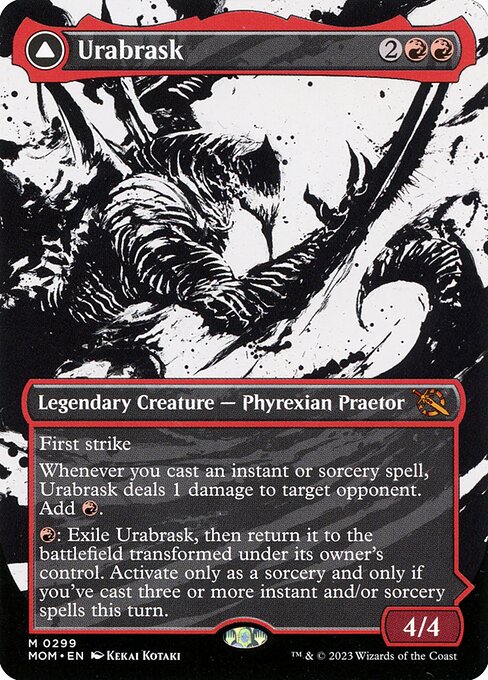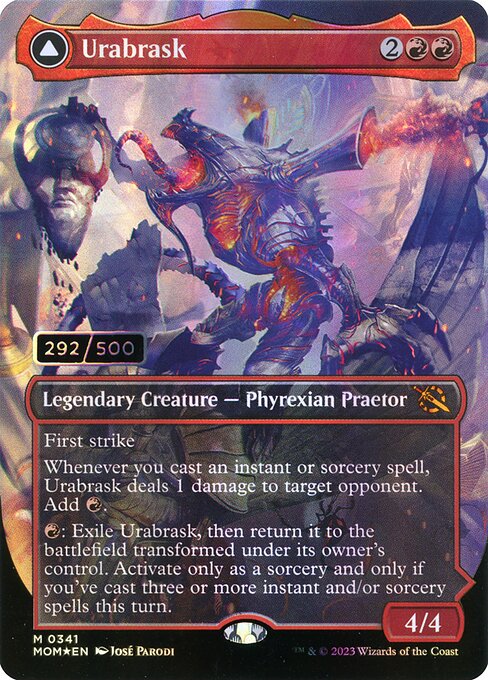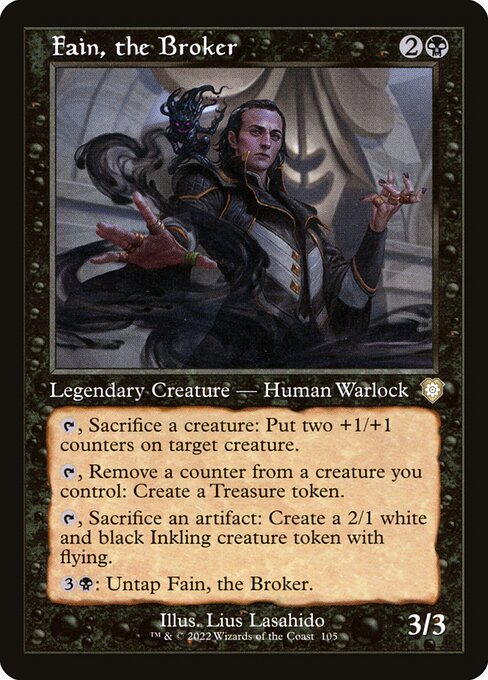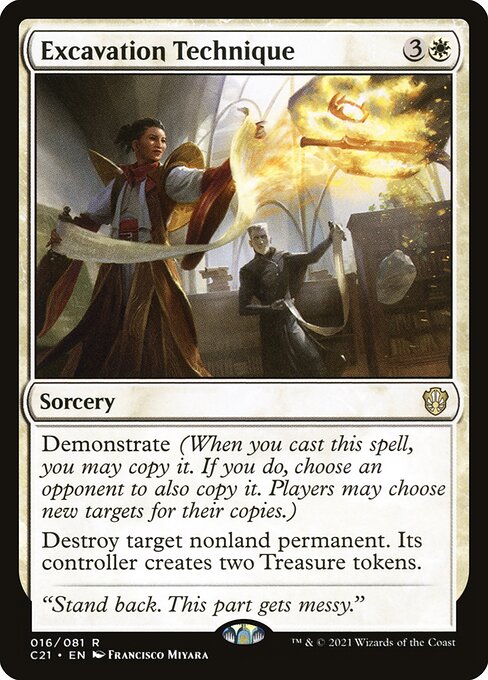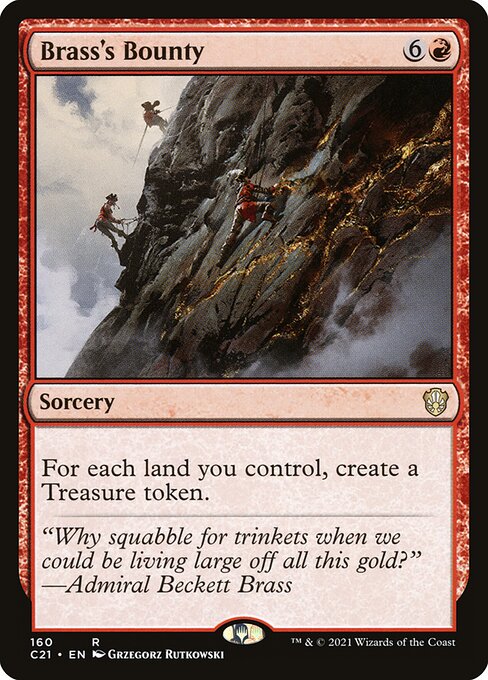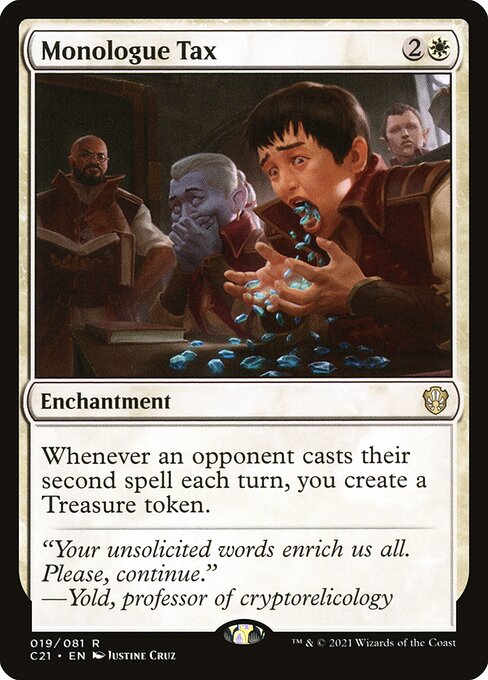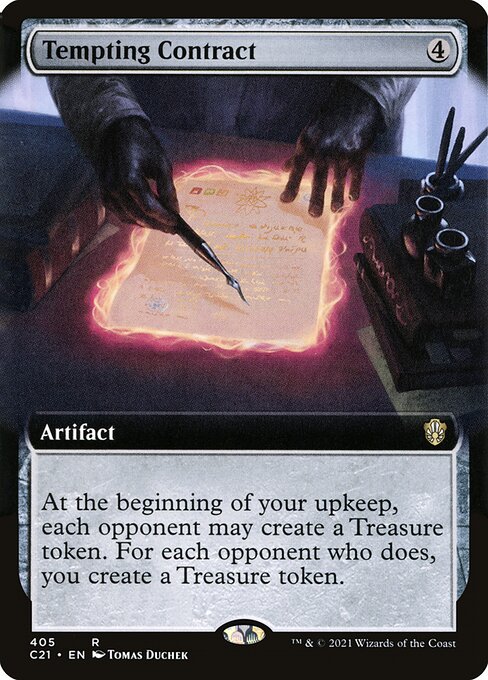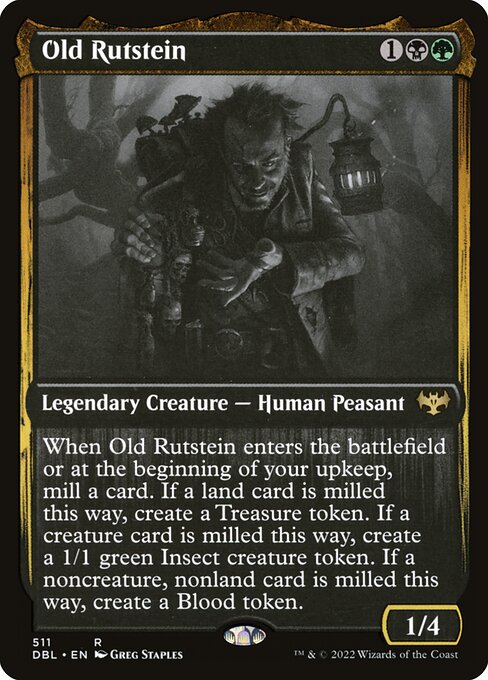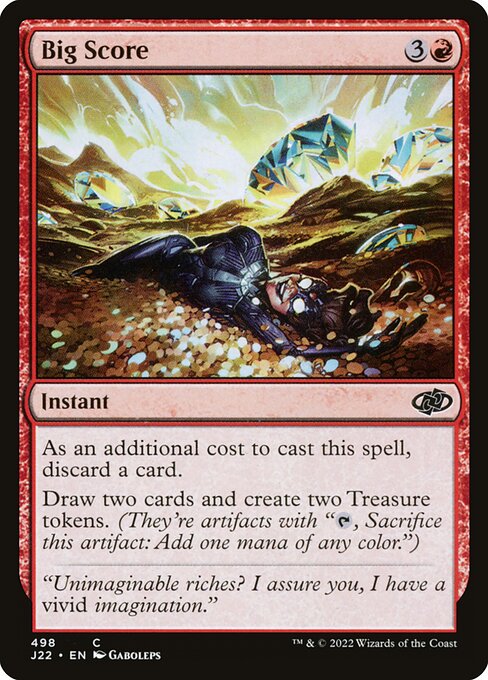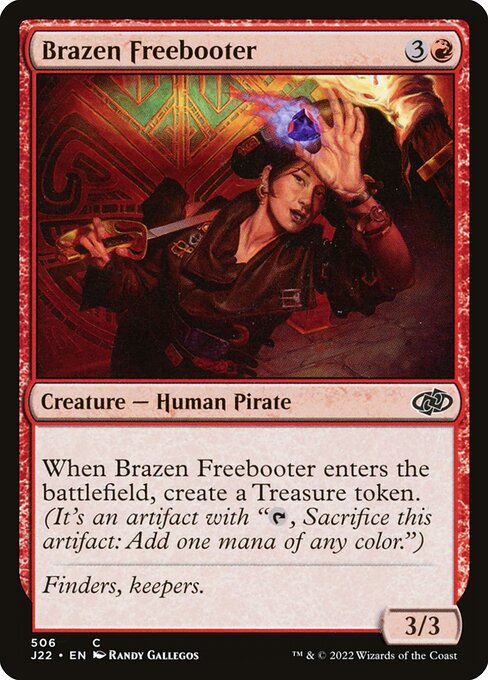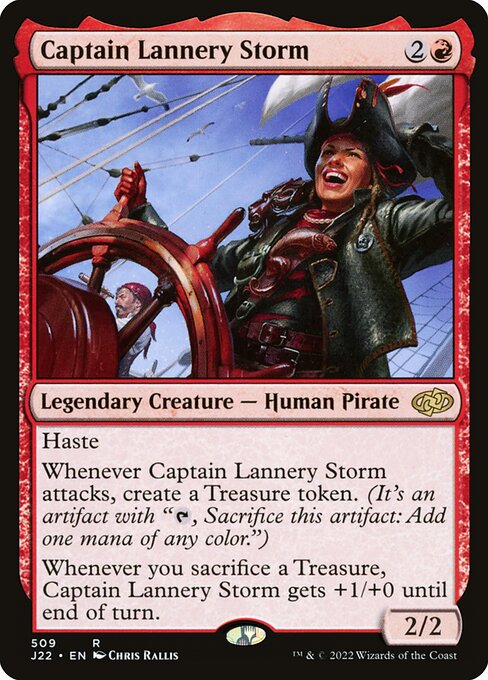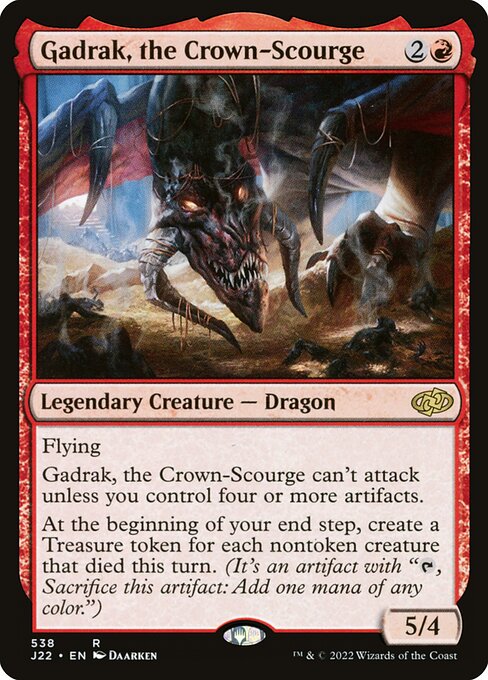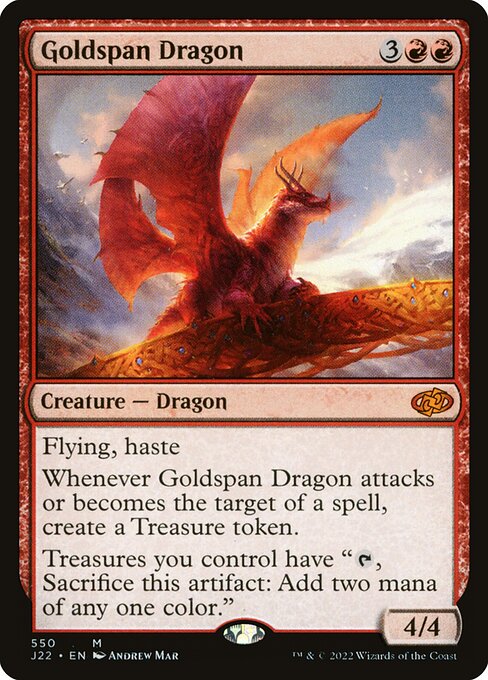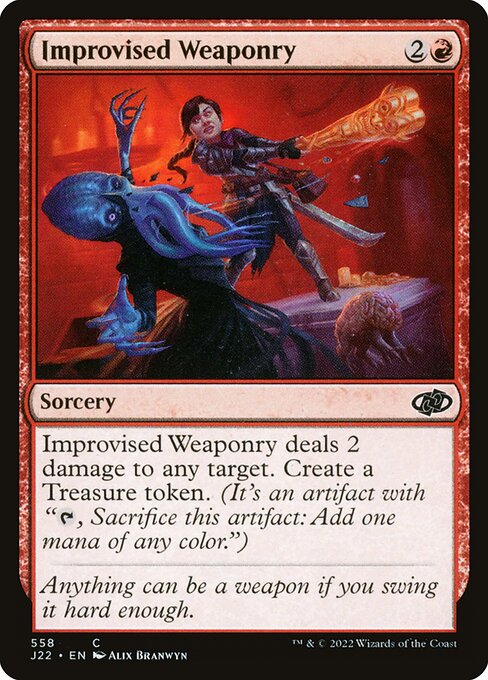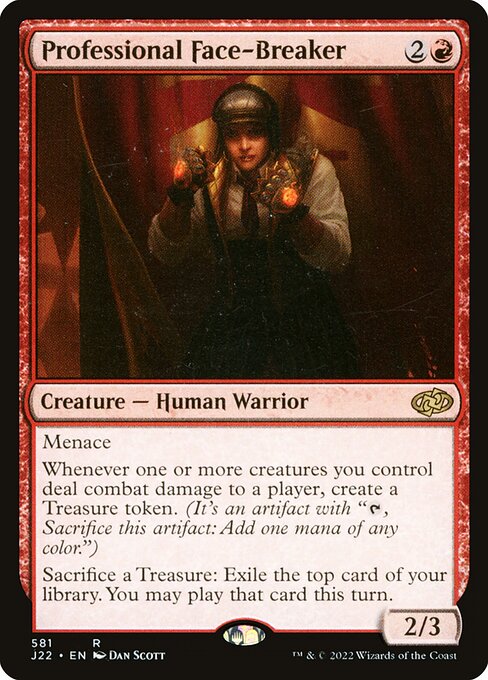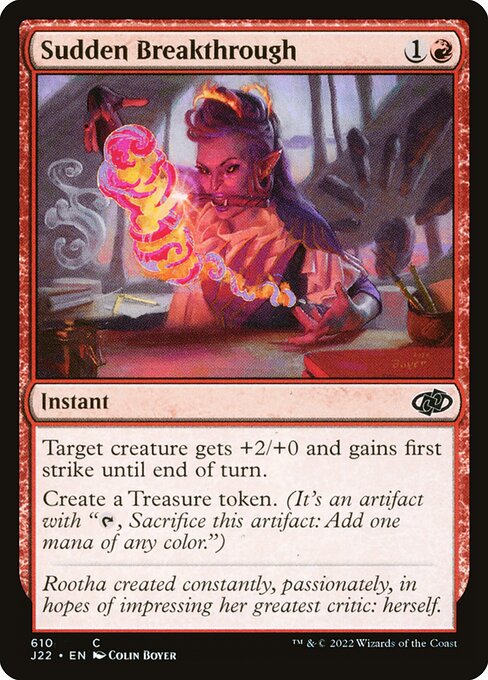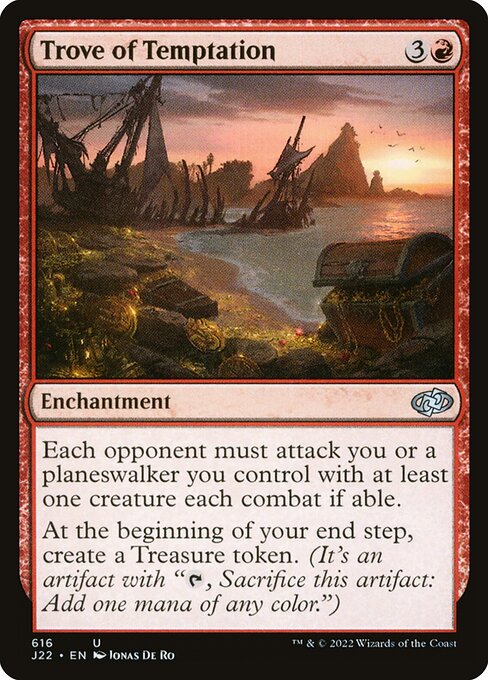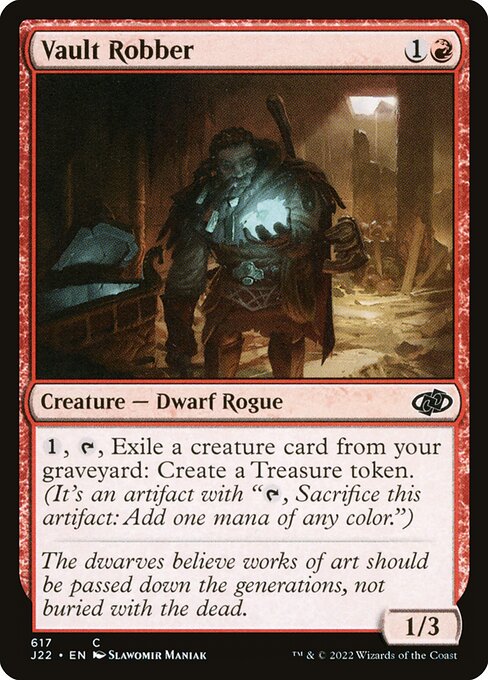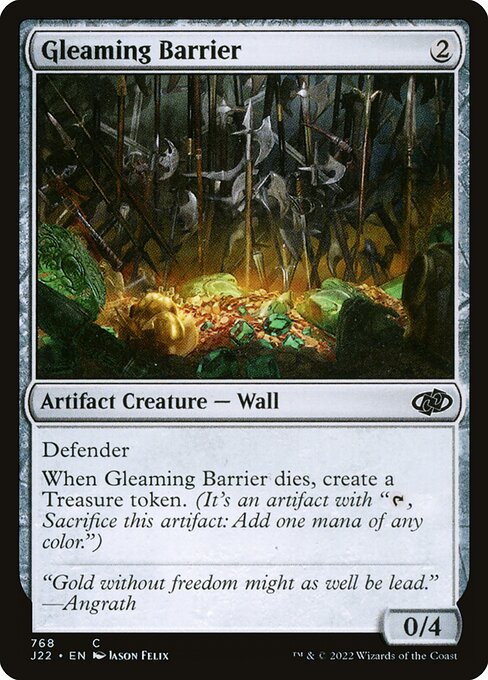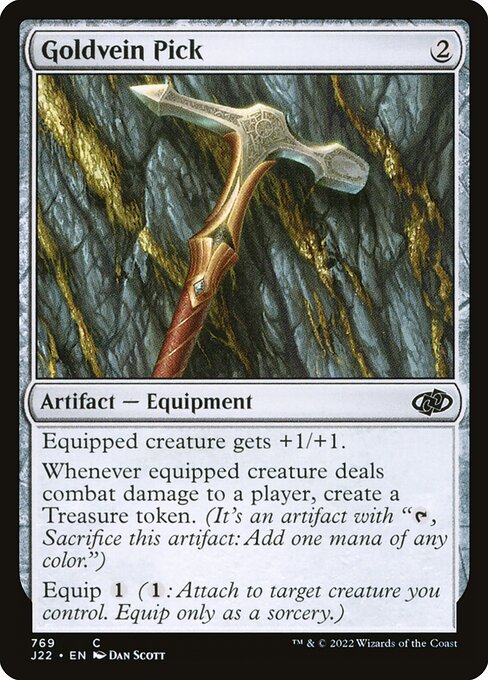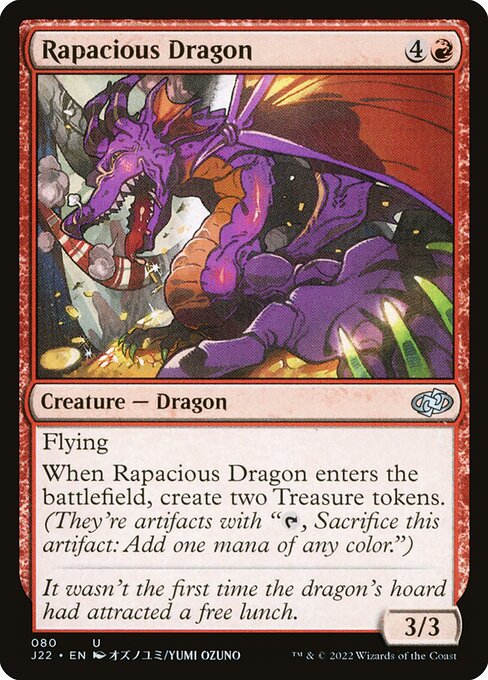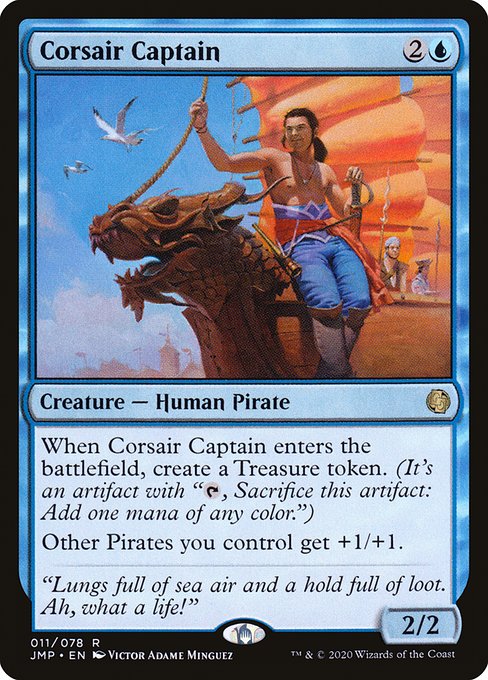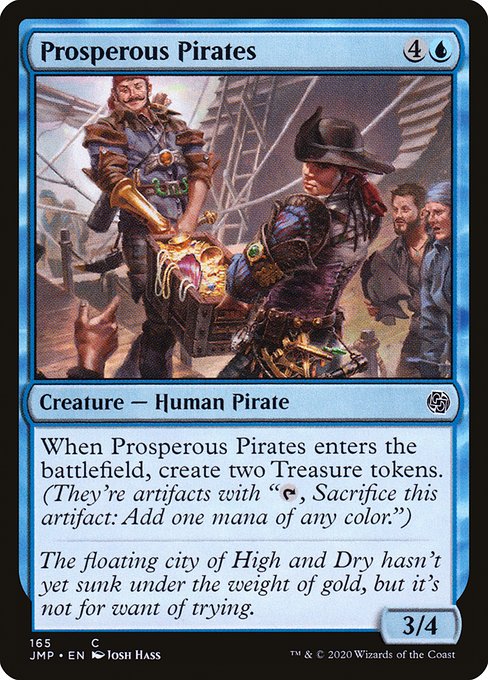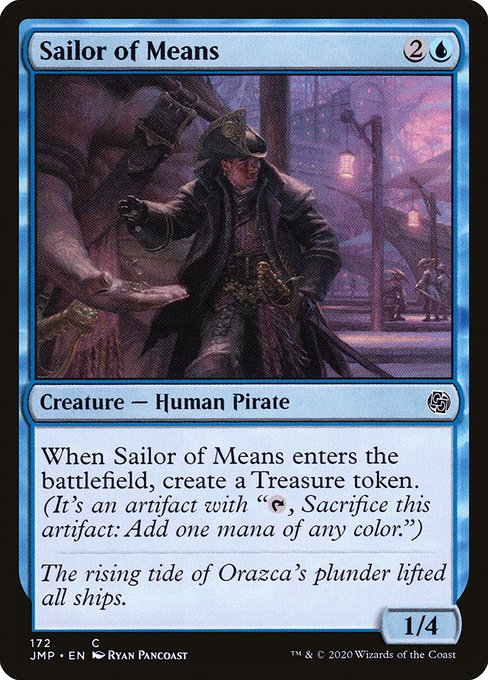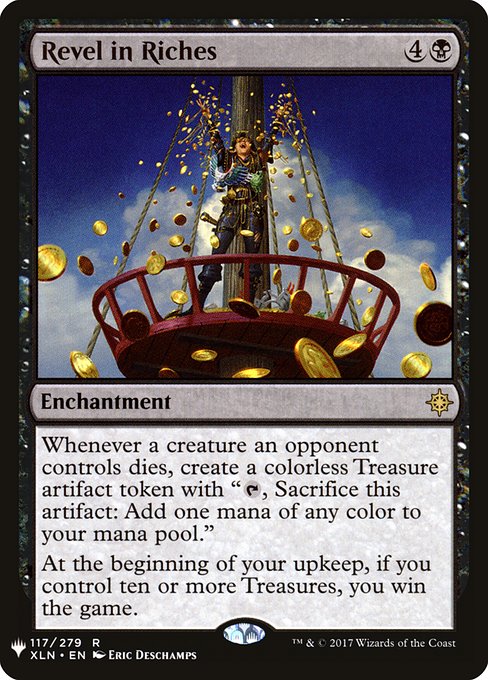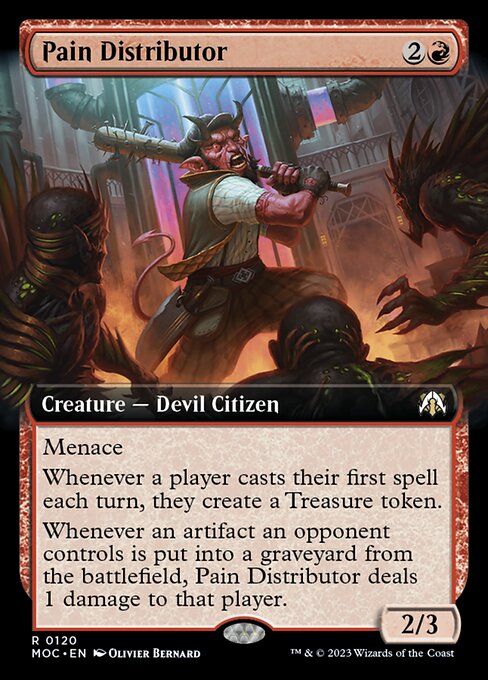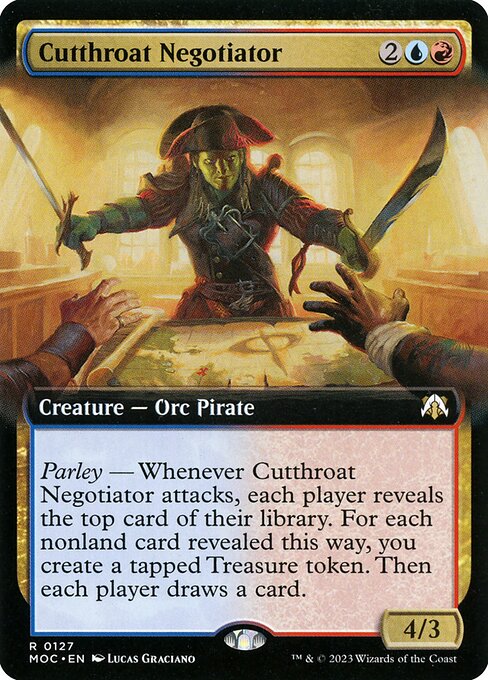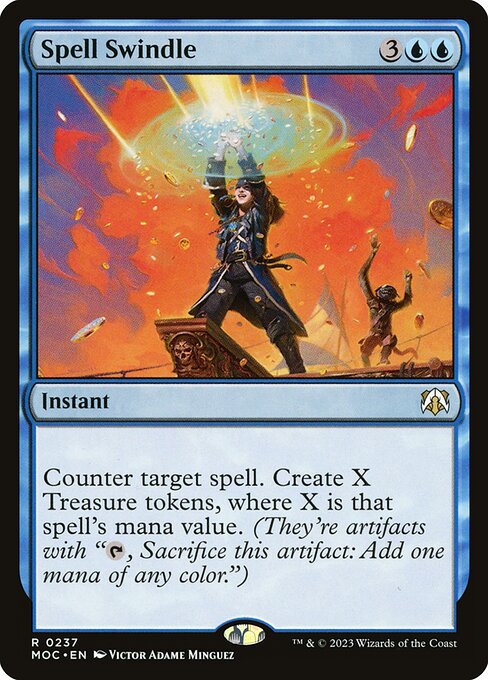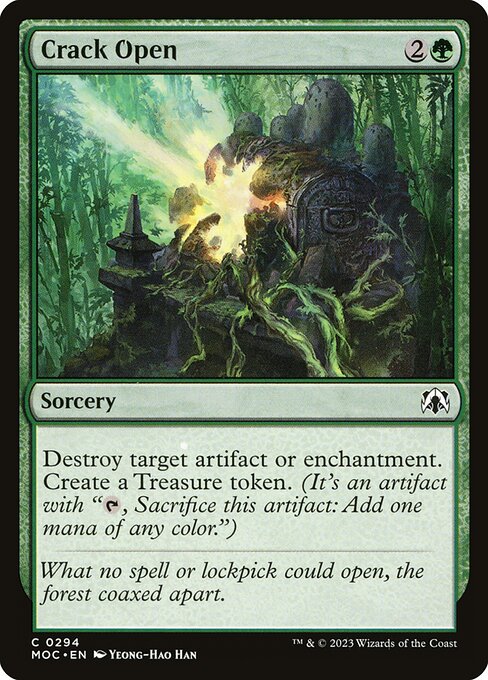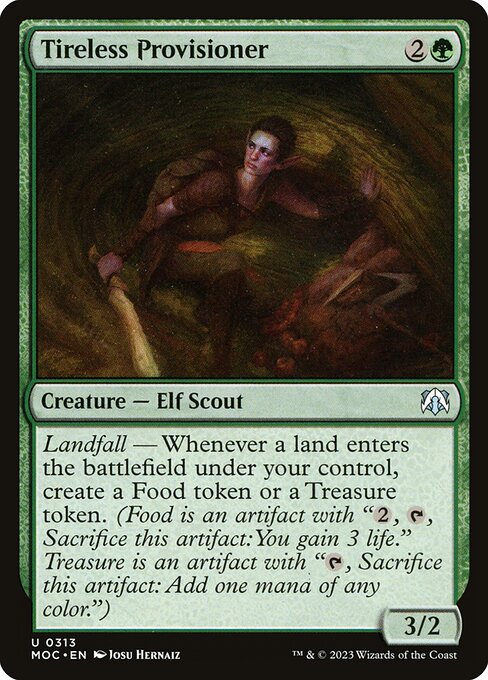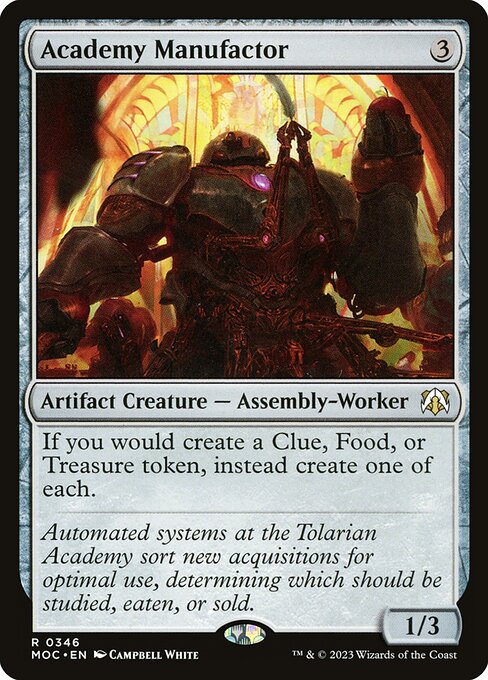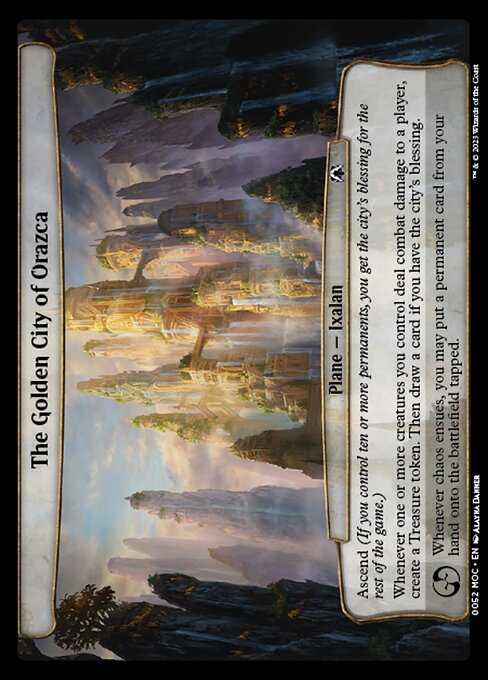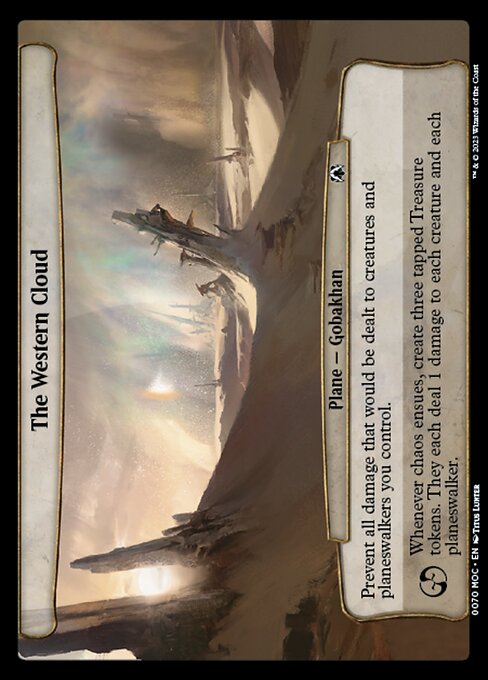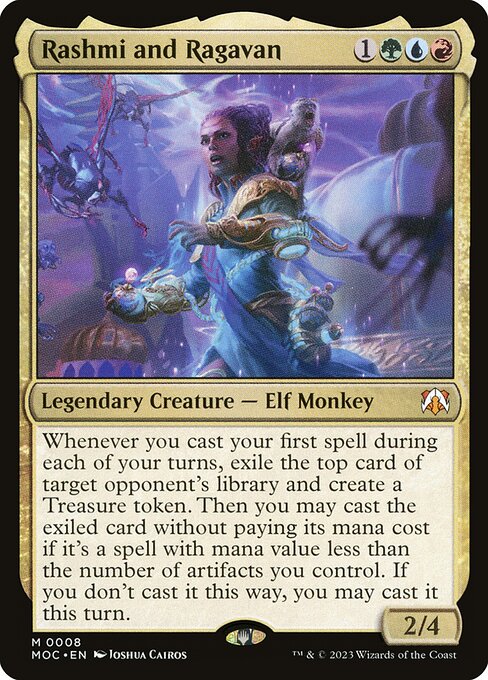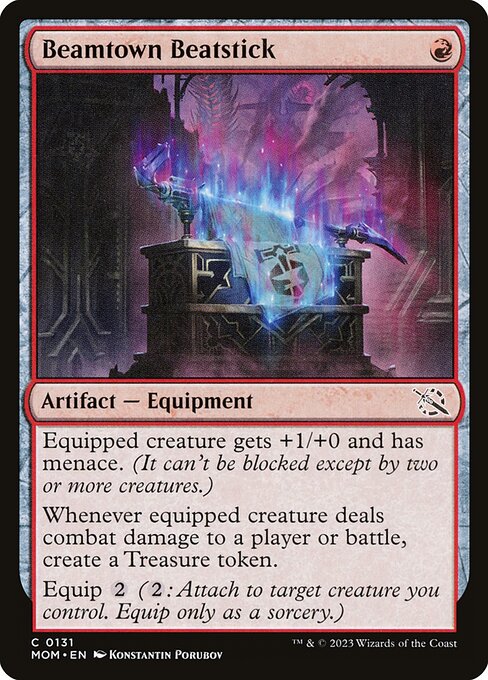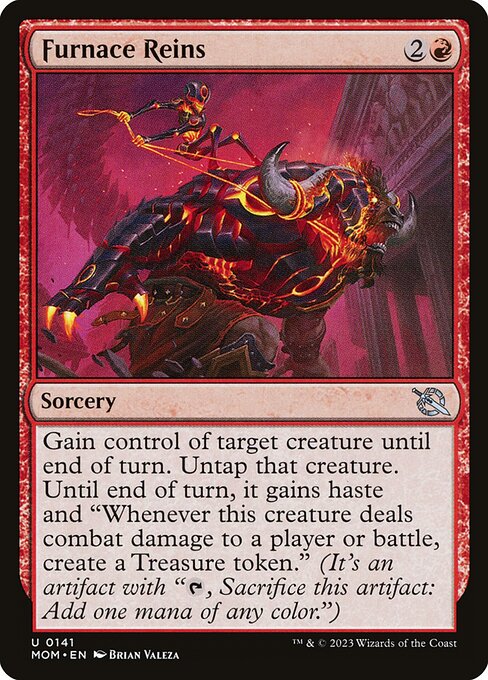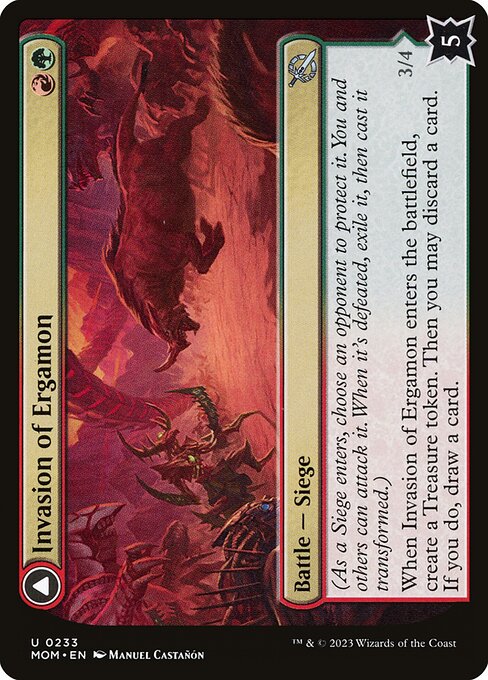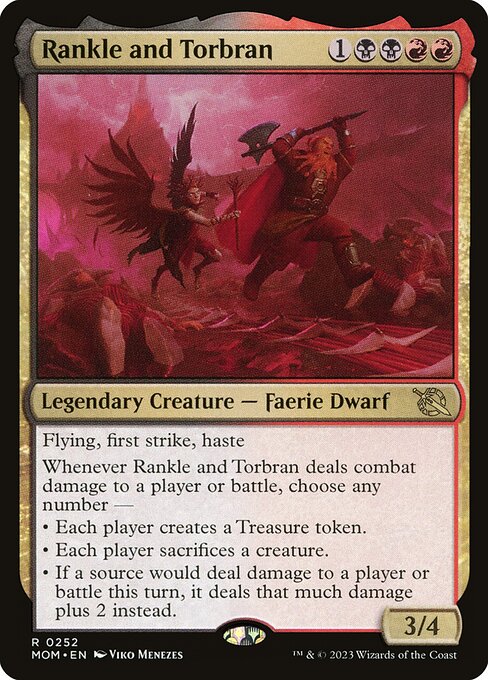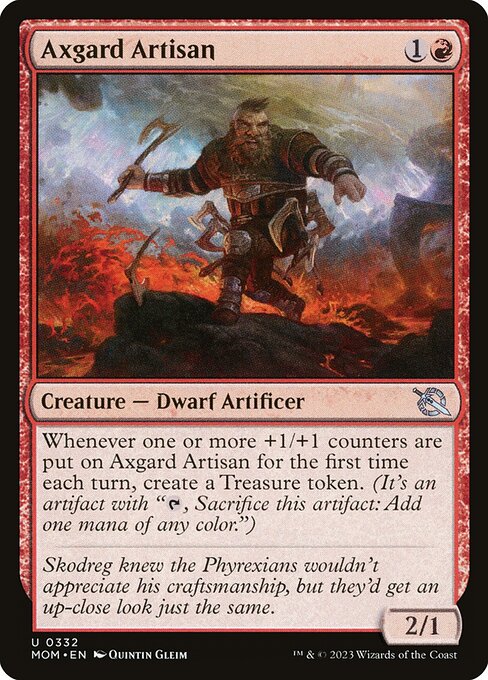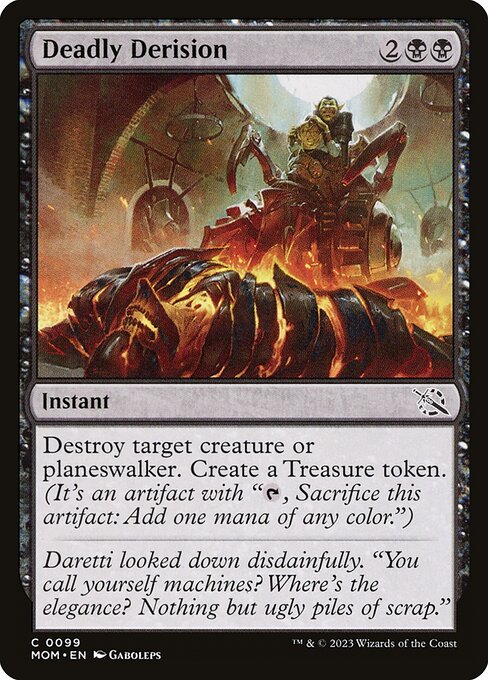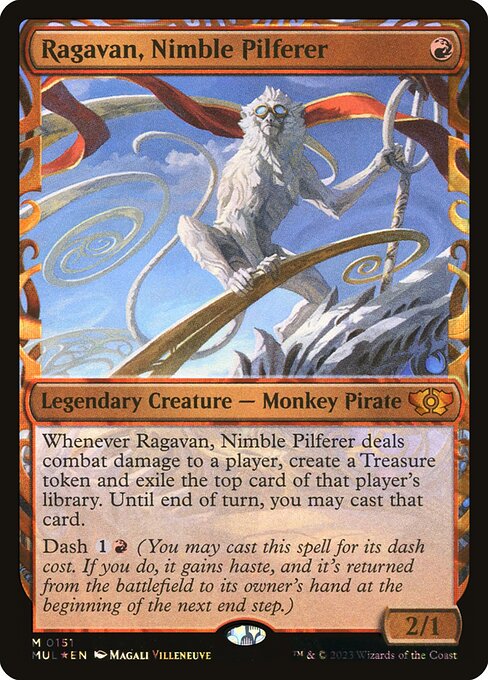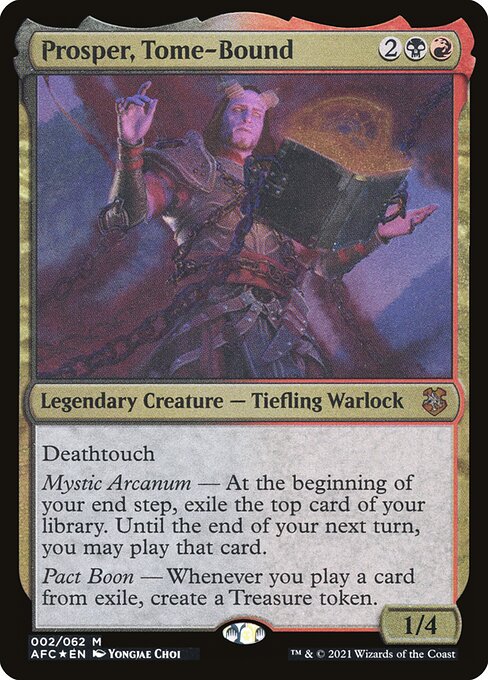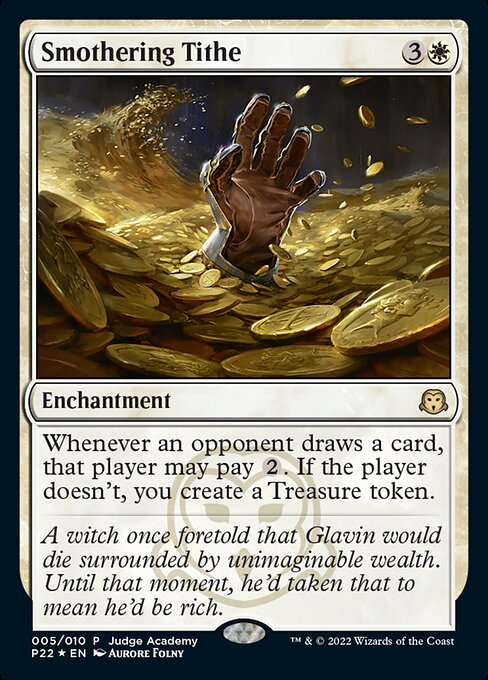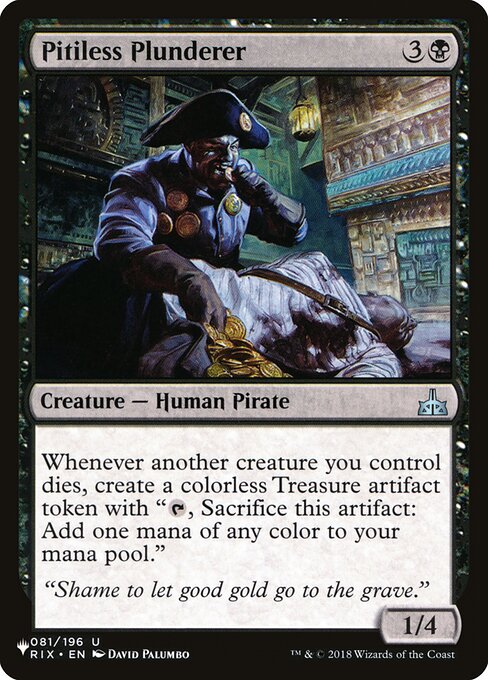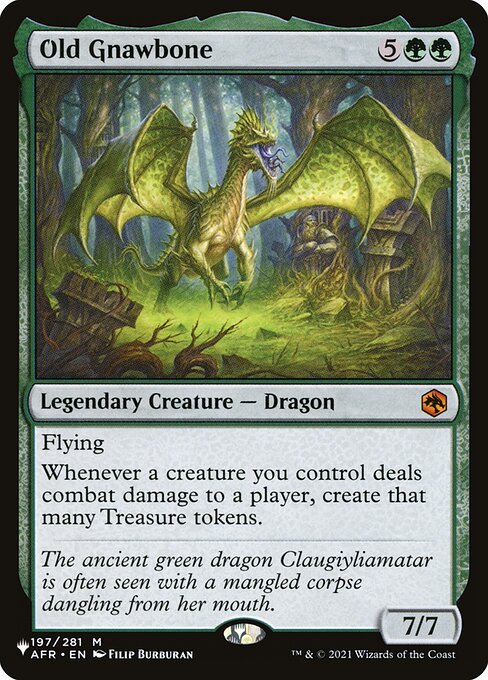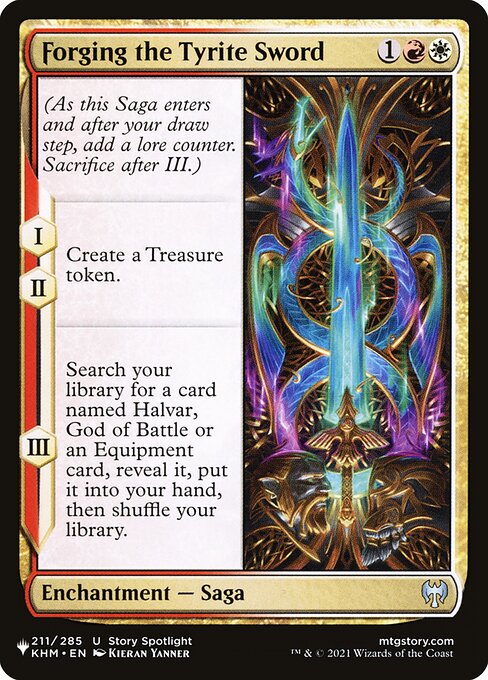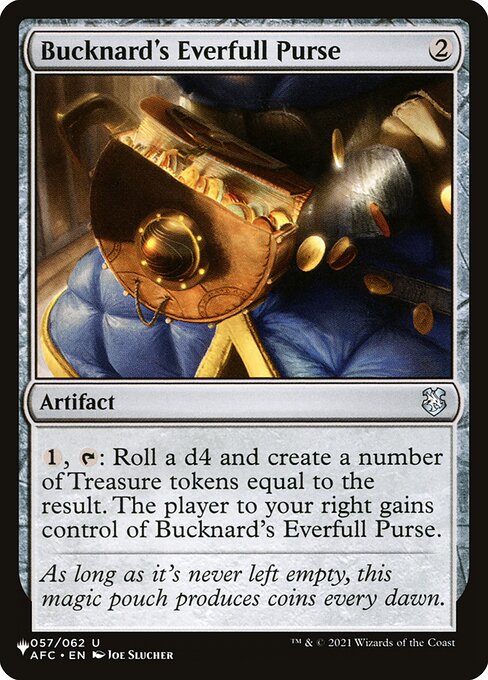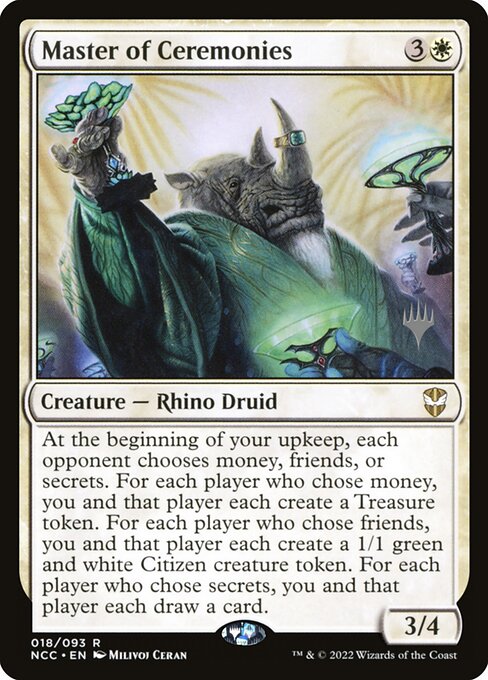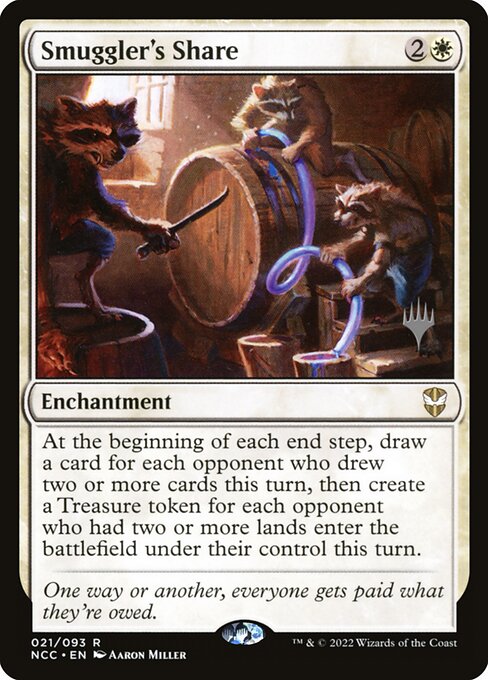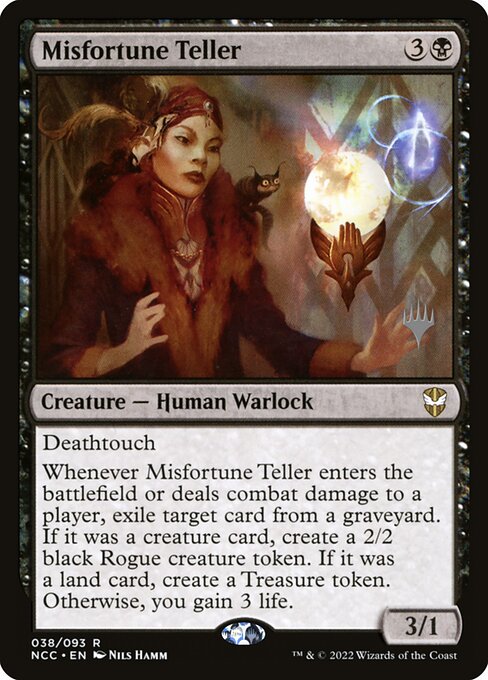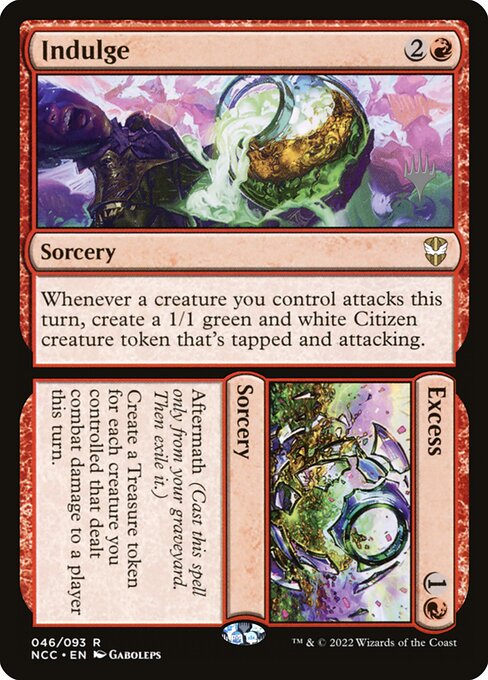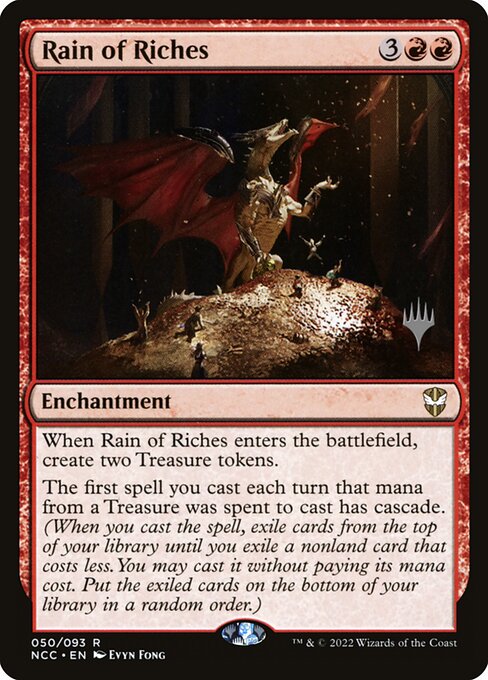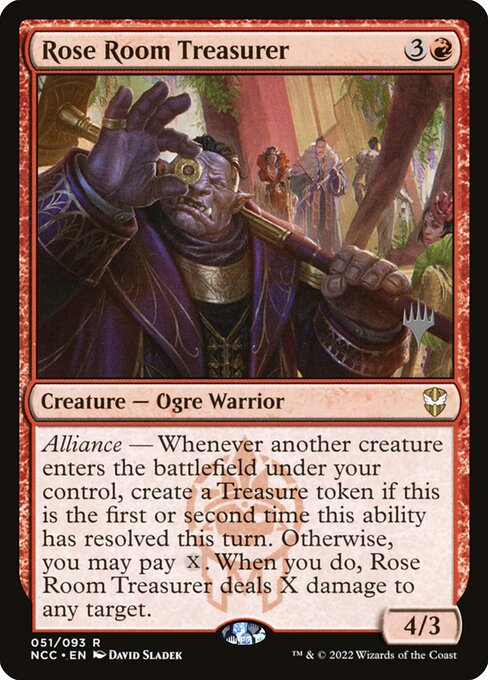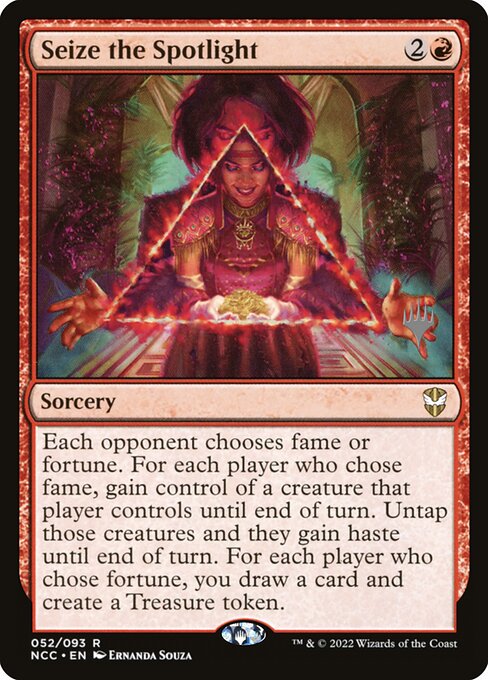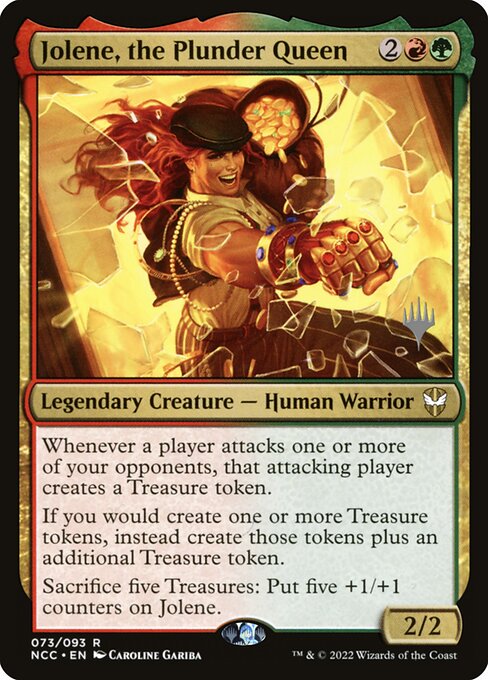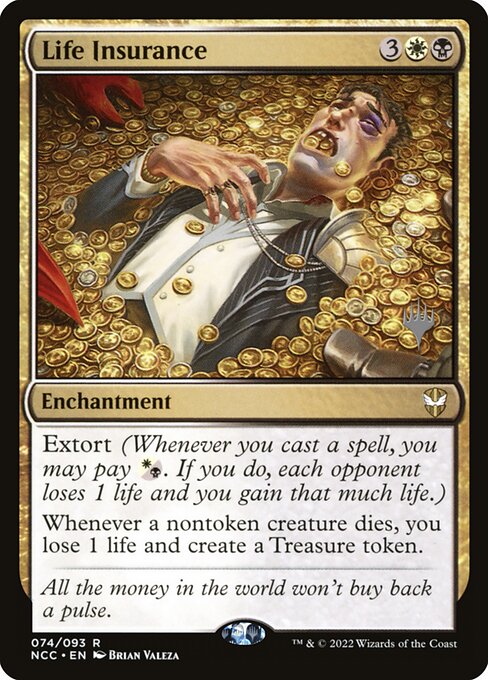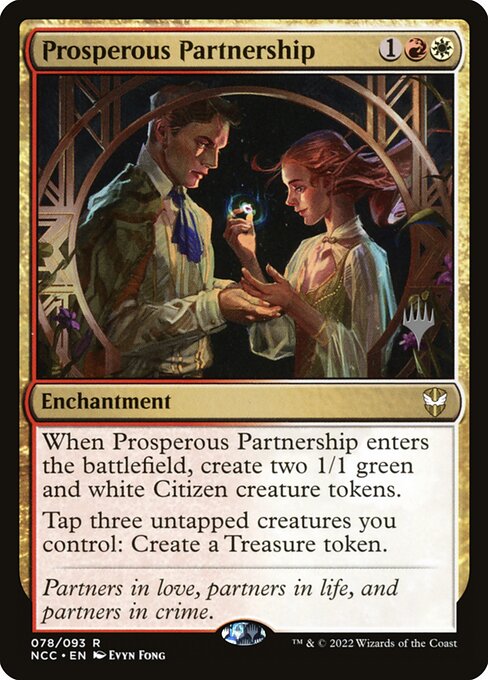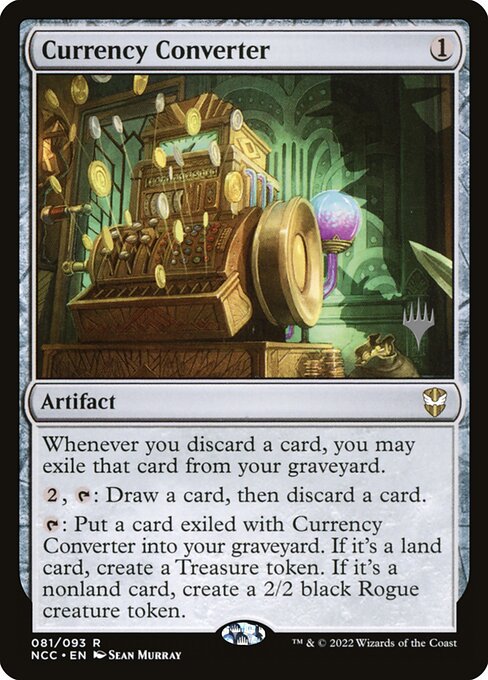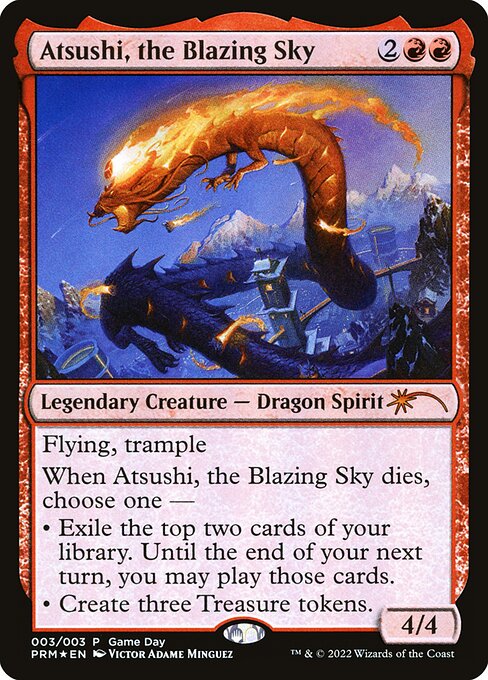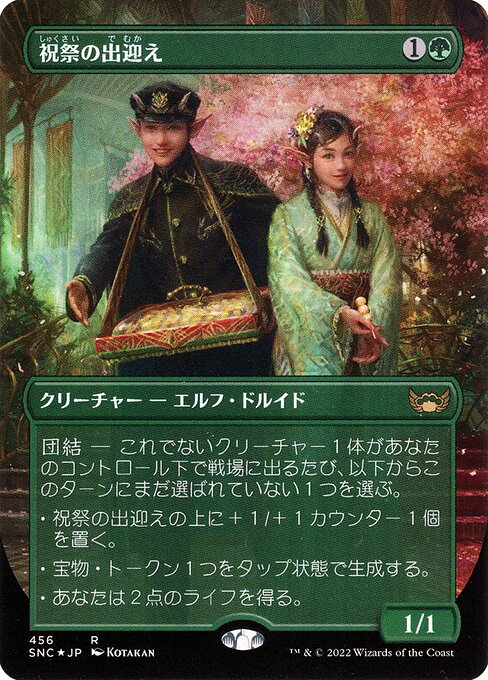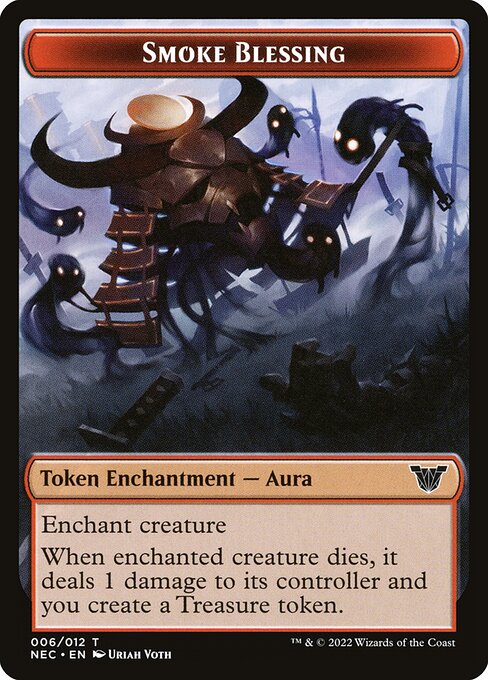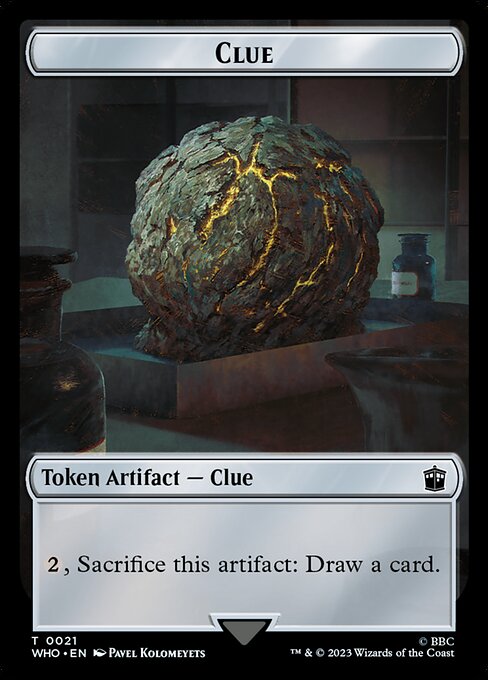ウラブラスク // 大いなる業
//
伝説のクリーチャー — ファイレクシアン・法務官 // エンチャント — 英雄譚
先制攻撃
あなたがインスタントやソーサリーである呪文を唱えるたび、対戦相手1人を対象とする。ウラブラスクはそれに1点のダメージを与える。を加える。
:ウラブラスクを追放する。その後、これをオーナーのコントロール下で変身させた状態で戦場に戻す。起動はソーサリーとしてのみ行い、そのターンにあなたが3つ以上のインスタントやソーサリーである呪文を唱えていなければ起動できない。 // (この英雄譚が出た際とあなたのドロー・ステップの後に、伝承カウンター1個を加える。)
I — 対戦相手1人を対象とする。大いなる業はそのプレイヤーと、そのプレイヤーがコントロールしている各クリーチャーにそれぞれ3点のダメージを与える。
II — 宝物・トークン3つを生成する。
III — ターン終了時まで、墓地からインスタントやソーサリーである呪文を唱えてもよい。これにより唱えられた呪文が墓地に置かれるなら、代わりにそれを追放する。大いなる業を追放する。その後、これを(第1面を表にして)戦場に戻す。
あなたがインスタントやソーサリーである呪文を唱えるたび、対戦相手1人を対象とする。ウラブラスクはそれに1点のダメージを与える。を加える。
:ウラブラスクを追放する。その後、これをオーナーのコントロール下で変身させた状態で戦場に戻す。起動はソーサリーとしてのみ行い、そのターンにあなたが3つ以上のインスタントやソーサリーである呪文を唱えていなければ起動できない。 // (この英雄譚が出た際とあなたのドロー・ステップの後に、伝承カウンター1個を加える。)
I — 対戦相手1人を対象とする。大いなる業はそのプレイヤーと、そのプレイヤーがコントロールしている各クリーチャーにそれぞれ3点のダメージを与える。
II — 宝物・トークン3つを生成する。
III — ターン終了時まで、墓地からインスタントやソーサリーである呪文を唱えてもよい。これにより唱えられた呪文が墓地に置かれるなら、代わりにそれを追放する。大いなる業を追放する。その後、これを(第1面を表にして)戦場に戻す。
4/4
standard
future
historic
gladiator
pioneer
explorer
modern
legacy
pauper
vintage
penny
commander
brawl
alchemy
paupercommander
duel
oldschool
premodern
Rulings
If multiple players are allowed to cast the same card, the player with priority at any given time determines who can cast it. The player whose turn it is has priority as each step and phase begins, and they receive priority after each spell and ability resolves. This means immediately after chapter III resolves you’ll have priority to cast spells before any other player does.
Urabrask will count any instant or sorcery spells you’ve cast during the turn, whether those spells resolved, didn’t resolve, were countered, or left the stack some other way. Urabrask won’t count copies of instant and sorcery spells that were created on the stack and not cast.
After chapter III of The Great Work resolves, casting spells from graveyards follows the normal rules for casting those cards. You must pay their costs, and you must follow all applicable timing rules. For example, to cast a sorcery spell from a graveyard, you can do so by paying its mana cost only during your main phase while the stack is empty.
Urabrask’s second ability isn’t a mana ability, even though it causes you to add mana. It uses the stack and can be responded to.
Urabrask will count any instant or sorcery spells you’ve cast during the turn, whether those spells resolved, didn’t resolve, were countered, or left the stack some other way. Urabrask won’t count copies of instant and sorcery spells that were created on the stack and not cast.
After chapter III of The Great Work resolves, casting spells from graveyards follows the normal rules for casting those cards. You must pay their costs, and you must follow all applicable timing rules. For example, to cast a sorcery spell from a graveyard, you can do so by paying its mana cost only during your main phase while the stack is empty.
Urabrask’s second ability isn’t a mana ability, even though it causes you to add mana. It uses the stack and can be responded to.
Rulings
If multiple players are allowed to cast the same card, the player with priority at any given time determines who can cast it. The player whose turn it is has priority as each step and phase begins, and they receive priority after each spell and ability resolves. This means immediately after chapter III resolves you’ll have priority to cast spells before any other player does.
Urabrask will count any instant or sorcery spells you’ve cast during the turn, whether those spells resolved, didn’t resolve, were countered, or left the stack some other way. Urabrask won’t count copies of instant and sorcery spells that were created on the stack and not cast.
After chapter III of The Great Work resolves, casting spells from graveyards follows the normal rules for casting those cards. You must pay their costs, and you must follow all applicable timing rules. For example, to cast a sorcery spell from a graveyard, you can do so by paying its mana cost only during your main phase while the stack is empty.
Urabrask’s second ability isn’t a mana ability, even though it causes you to add mana. It uses the stack and can be responded to.
Urabrask will count any instant or sorcery spells you’ve cast during the turn, whether those spells resolved, didn’t resolve, were countered, or left the stack some other way. Urabrask won’t count copies of instant and sorcery spells that were created on the stack and not cast.
After chapter III of The Great Work resolves, casting spells from graveyards follows the normal rules for casting those cards. You must pay their costs, and you must follow all applicable timing rules. For example, to cast a sorcery spell from a graveyard, you can do so by paying its mana cost only during your main phase while the stack is empty.
Urabrask’s second ability isn’t a mana ability, even though it causes you to add mana. It uses the stack and can be responded to.
Votre collection ? vos decks ?
Envie de gérer votre collection et/ou créer des decks ?
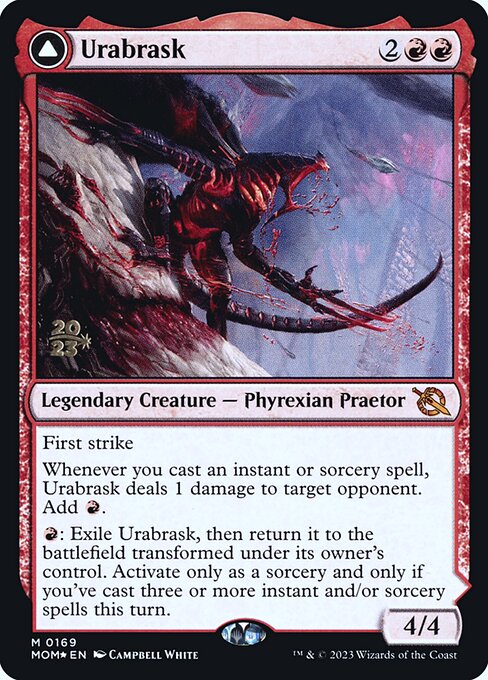

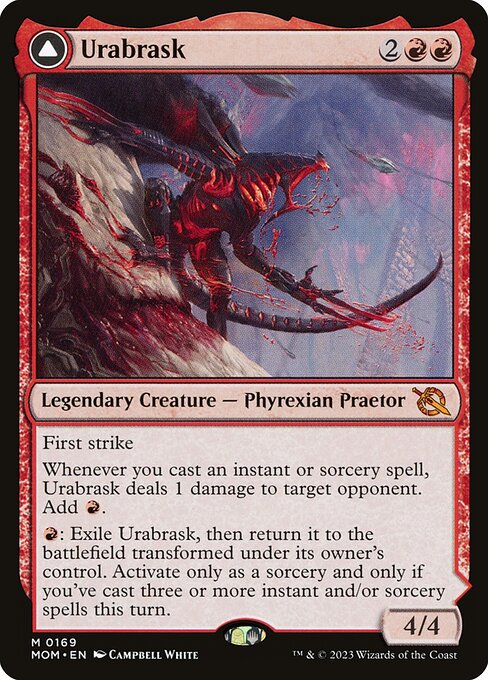
 0
0
 9.28€
9.28€
